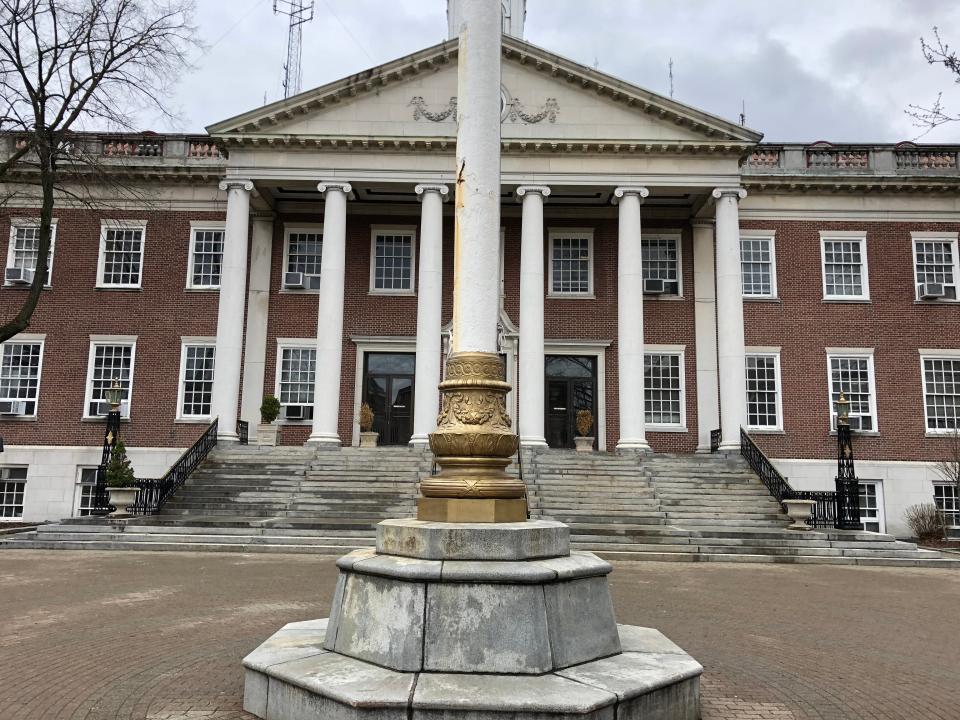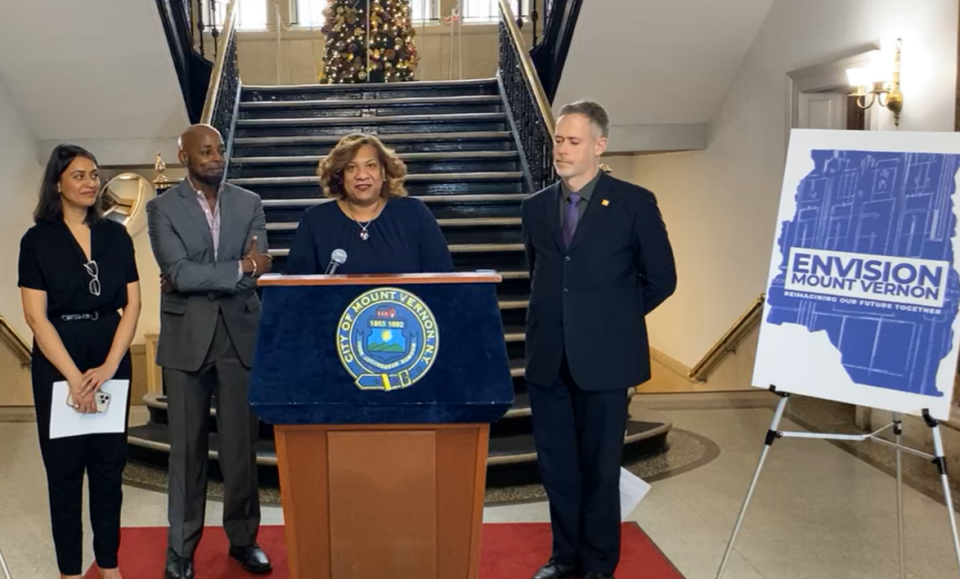Mount Vernon City Hall recording ban raises First Amendment concerns
A new Mount Vernon ordinance restricting when and where members of the public can record officials inside City Hall has come under fire from open government advocates.
The ordinance, which was approved unanimously by the city council last week, declares the council chambers and rotunda areas within City Hall "nonpublic," cutting off access to those spaces outside of a narrow set of preauthorized purposes. The council president was absent from that vote.
Members of the public are not allowed to be present in areas deemed "nonpublic" unless they are transacting business with city officials or attending a formally convened public meeting.

Traditionally, the rotunda has been the public's entry point into the building and is broadly accessible by members of the public.
The legislation also prohibits audio and video recording on all city-owned property, including these newly designated "nonpublic" areas, unless everyone appearing on the recording gives their consent, according to the law's text.
"You cannot make something nonpublic just by your say-so. You can’t do it by fiat," notes Daniel Novack, co-chair of the New York State Bar Association's committee on media law. "Something like a rotunda is the axiomatic town square. It’s surprising to me that a city would think they could take a rotunda away."
Members of the city council didn't respond to requests for comment on the legislation, and the city's corporation counsel, Brian Johnson, declined to comment.
NYCLU sues NY over police records:NYCLU sues NY prisons over correction officers' misconduct, discipline records
Clash over taxes in Mount Vernon:Mount Vernon schools say city owes them $11.7M in taxes, causing financial crisis
Does Mount Vernon law run afoul of First Amendment?
The legislation justifies these restrictions by noting that "there has been an uptick in intrusive video and audio recording within the internal agencies of City Hall," claiming that these activities have "caused an interruption in the daily business" of city government.
Indeed, there have been recent encounters in Mount Vernon with so-called First Amendment auditors, free speech advocates who wander around public areas of government buildings and capture their experiences on camera.
However, Novack explains that the very kind of conduct Mount Vernon is seeking to outlaw is protected by the U.S. Constitution, which opens up the inner workings of the government to public scrutiny.

"If someone staring at you with a camera is detrimental to getting your work done, you could come up with some way to address that concern, but it can’t be a blanket ban," he said.
Justin Harrison, policy counsel at the New York Civil Liberties Union, concurred, noting that "the First Amendment protects the right to photograph public buildings from a lawful vantage point."
The ordinance provides penalties for those who don't follow the new restrictions, allowing fines up to $500 and the potential for conviction as a misdemeanor offender. Individuals who violate the restrictions may also be declared illegal trespassers and be removed by the police.
"It’s very broad and over-reaching," commented Paul Wolf, president of the New York Coalition For Open Government. "It’s just a bad precedent and an overreaction to employees not liking to be recorded."
Another quirk of the law is that it deputizes the city clerk, a traditionally administrative role, to enforce its prohibitions.
If the clerk has "reasonably suspected" that someone is in violation of the litany of new restrictions, they can eject that person from City Hall, according to the legislation. The city clerk may also unilaterally decide which city-owned properties are nonpublic, in effect determining how and when the public may gain access to publicly owned spaces.
"This law gives government officials far too much discretion to decide on the fly what’s permitted and what’s not," Harrison observed.
Are other cities enacting similar laws?
While this exact type of blanket prohibition may not be so widespread, Harrison has noticed a trend in other municipalities suppressing unpopular or unwanted speech. He said that some governments have attempted to prohibit signs and posters at council meetings, or bar people from standing in the aisles at public meetings.
"If you're a government official, you sign up for a certain degree of public criticism and public scrutiny," he said.
Despite Mount Vernon's attempt to rein in these activities, New York state has by and large been a key player in the right to record movement.
Just weeks after the death of George Floyd at the hands of a Minneapolis police officer, New York lawmakers passed the Right to Monitor Act, which codified the protections of the U.S. Constitution into state law. It expressly guaranteed that New Yorkers have the right to record police activities without retribution.
Asher Stockler is a reporter for The Journal News and the USA Today Network New York. You can find him on Twitter at @quasiasher or send him an email at astockler@lohud.com. Reach him securely: asher.stockler@protonmail.com.
This article originally appeared on Rockland/Westchester Journal News: Mount Vernon City Hall recording ban raises First Amendment concerns

